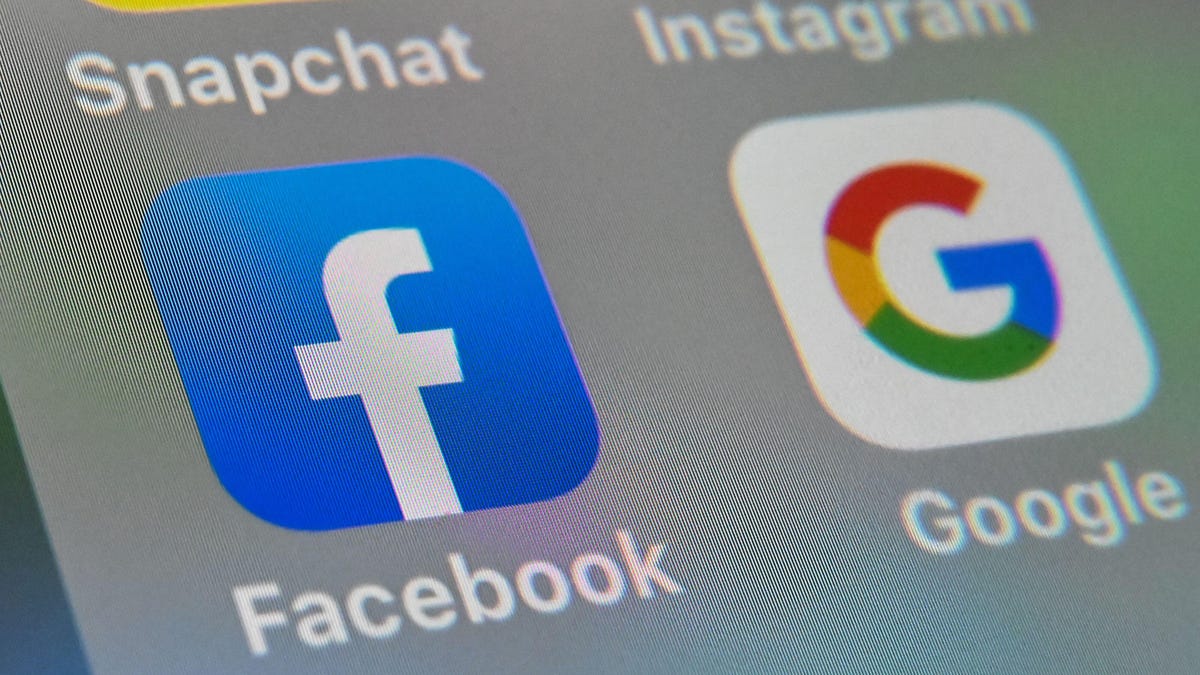Facebook and Google will let most employees work from home through 2020
The announcements give a glimpse of how two of the largest tech companies in the world may eventually re-open.

Facebook and Google gave updates to their work from home plans.
Facebook and Google told employees Thursday they'll allow most of their employees to work from home through the end of this year.
Facebook said it doesn't plan to reopen most of its offices until July 6 at the earliest. The company will consider various factors such as "public health data, government guidance and local nuances" when deciding whether to reopen its offices, said a spokeswoman.
Google CEO Sundar Pichai told employees at a company all-hands meeting Thursday that they'll likely work remotely for the rest of 2020, the company confirmed. The Information earlier reported the news.
As has been the case with most companies, Facebook and Google employees have been working from home to help slow the spread of the novel coronavirus. The announcements by two of the largest companies in Silicon Valley offer a glimpse into how the rest of the tech industry may plan to reopen in the coming months.
In April, Facebook CEO Mark Zuckerberg said the social network's employees would likely be among the last back to the office when society reopened, noting the return to work would have to be done in a "staggered way." At the time, he said most employees would work from home through the end of May. Employees who couldn't work remotely, such as content reviewers who work on counter-terrorism or suicide and self-harm prevention, as well as certain engineers, might be able to return sooner to the office, he said at the time.
Google had made similar plans for its employees, previously telling them they would work from home at least until June 1. The company also said any return to offices would staggered. Pichai said Thursday that employees who need to work from offices will be able to do so starting in June or July, according to The Information, and that the company would take safety measures to protect those workers on campus.
The announcements from the two companies affect several thousand workers around the world. Facebook currently has more than 48,000 full-time employees, while Alphabet, Google's parent company, has more than 120,000.
Facebook hasn't determined which employees will be able to come back into its offices once they reopen, CNBC reported earlier. A Facebook spokeswoman said employees who can do their work remotely will be able to do so through the end of 2020.
On Thursday, Facebook COO Sheryl Sandberg said in an op-ed in Fortune that the coronavirus pandemic has created a "double double shift" for female employees who have to care for children and sick or elderly relatives. She urged employers to help relieve some of this stress by offering more flexibility in the workplace. Facebook suspended performance ratings and created extended childcare benefits and leave options for caregivers, she said.
Managers should also offer their workers emotional support, Sandberg said. She urged men to pitch in with housework and called for paid leave, a higher minimum wage and affordable childcare.
"Getting through this crisis means helping women get through it too," Sandberg said. "All of us -- employers, managers, elected officials and spouses -- need to help lighten their loads."



